Shuttered Shuls, Shattered Trust

Has Cuomo gone too far? The closures, the backlash, and the shattered trust
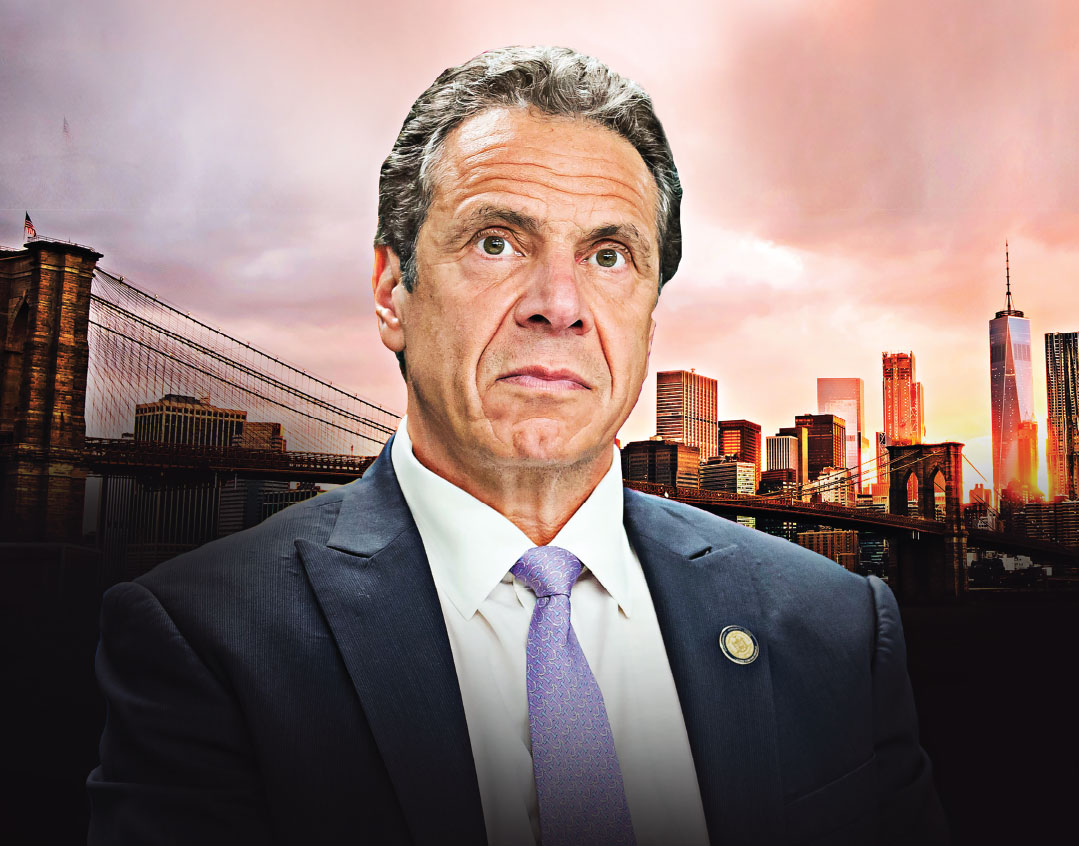
When Governor Cuomo sprang a surprise crackdown on Jewish locales last week, instituting a draconian lockdown, closing schools and nonessential businesses, limiting shul attendance to ten mispallelim regardless of a building’s size, and denounced the ultra-Orthodox sector as a community of lawbreakers, even his staunchest allies were
shocked.
Can the rift ever be repaired?
Andrew Cuomo and the Jews go back such a long way, he frequently injects Hebrew words into his speeches. “You’re all, as they say in Italian, mishpachah,” he once told a non-Jewish crowd at a fundraiser.
It is therefore bewildering, to say the least, for longtime Cuomo watchers as the governor has appeared to embrace confrontation and battle with the Orthodox community these past few weeks. He referred to them with the pejorative term “ultra-Orthodox,” denounced them on national television as lawbreakers, and used fake pictures and audio as “evidence” of a plot against him.
All this is leading longtime allies of the governor to demand an apology, with many saying that the rupture is the worst of his ten years as the state’s chief executive.
100 Percent Betrayed
The coronavirus infection rate in New York, once the worst in the nation, had remained below 1 percent for 50 days before it began to inch upward again about three weeks ago. The neighborhoods with the worst numbers are actually areas where few Jews live. But in a surprise crackdown last week, the governor focused on Jewish locales, instituting a draconian lockdown, closing schools and nonessential businesses and limiting shul attendance to ten mispallelim, regardless of a building’s size.
“The Orthodox Jewish community — ultra-Orthodox Jewish community — what’s happening there is the rules were never enforced in these communities,” Cuomo said last week, implying that they are a community of lawbreakers.
“They never followed the first rules,” he claimed.
As proof, he cited the measles outbreak two years ago. “Same argument — ‘Well, measles will spread through your community. Well, measles will infect the larger community,’ ” Cuomo said. “Same conversation.”
It is unclear what the science-minded governor was referring to, since reports have shown that chassidic communities actually have higher vaccination rates than the general population.
Orthodox groups such as Agudath Israel responded to the remarks indignantly, issuing a rare harsh rejoinder to the governor by pointing to the mass closure of shuls and yeshivos when the pandemic first struck, as well as the miniscule levayah of the Novominsker Rebbe.
But the worst was yet to come. On Tuesday of Chol Hamoed, Cuomo’s chief of staff arranged for what she billed as a call for a select few with the governor to hash out a policy that would work for the Jews and tackle the COVID rates ahead of Simchas Torah. The dozen participants called in at 9 a.m. and were greeted with a muted phone — they could only listen as Cuomo extolled his leadership before urging them to accept a 50 percent capacity limit on shuls for a period of two weeks.
There was no way to respond — despite being asked if they had any questions, and repeatedly pressing the button to speak, there were only three softball questions allowed. One participant said he later found out that the three questions were planted by the governor’s team, meaning participants weren’t allowed to deviate from them.
The participant said that he held a conference call with members of his kehillah after the call to see whether a 50 percent capacity was feasible. Suddenly, they were tossed a grenade by Cuomo when he announced a complicated plan revolving around a cluster of red, orange, and yellow zones, with a full-blown closure of nearly all frum neighborhoods located in red or orange zones.
“Boom,” the person described was his feeling. “We felt a hundred percent betrayed. The trust element with him is very bad at this point.”
The Robocall that Wasn’t
A member of a different kehillah who was not on the call but was receiving instant feedback by a colleague who was a participant said that Cuomo “played them like a fiddle.”
“You telling me that the whole cluster thing was put together in three hours? It’s way too complicated for that,” said the man, a prominent askan.
The feelings of betrayal would only get worse in the coming days. During one PowerPoint COVID update, Cuomo presented two pictures as “evidence” that the Jews were not taking social distancing rules seriously. One photo was quickly proven to be a 14-year-old picture of the previous Satmar Rebbe’s levayah. The other was a scene from Crown Heights, outside the cluster he was referring to.
Then he played what he claimed was “proof” that President Trump was involved in fomenting unrest against him by inciting Boro Park residents to protest.
“There is no doubt that he is exploiting division and fomenting division to help his campaign,” Cuomo said on Thursday. “I also believe his campaign is fomenting the ultra-Orthodox in Brooklyn. Well, that’s wild speculation by the governor. No, I don’t do wild speculation. Let me play you a recording of a call that went out.”
The “robocall,” as he called it, was audio of someone claiming to have been “in touch” with the Trump campaign. “They’re urging everybody to come out with signs, ‘Cuomo killed thousands.’ Come to 13th Avenue and hold big signs, ‘Cuomo killed thousands,’ as many as possible, as big as possible. The more signs we have, the bigger the national outcry will be.”
“How ugly, how divisive, how poisonous, how disgusting, how hurtful, how painful,” Cuomo said.
But NY1 reporter Zack Fink within minutes tracked down the person who sent out the audio and verified that it was a 24-year-old who sent it as a prank to two WhatsApp contacts. No robocall, no Trump campaign. Instead, there are a bunch of pundits scratching their heads and wondering how a governor with a vaunted reputation for facts and science could have miscalculated on so many levels.
Where’s the Science?
“What I’m most surprised about is that I never expected this of him,” said Assemblyman Simcha Eichenstein. “I never expected Governor Cuomo to go on national TV and say that there’s only a small group of people — the ultra-Orthodox — not listening to the rules. In fact, the neighborhood with the most infection rates was in Gravesend. How many ultra-Orthodox Jews are there in Gravesend? Hardly any. What the governor did is divisive, it’s outrageous, and it stokes anti-Semitism.
“For a governor to say that he bases everything on facts and science — he played a WhatsApp message as a robocall? Gimme a break,” Eichenstein added. He said he was aware of the conference call before it took place but deliberately decided not to join. “I have a policy,” he said acerbically, “that I do not participate in phone calls where I am on mute and there’s no dialogue.”
Rabbi Yeruchim Silber, Agudah’s director of New York governmental affairs who deals frequently with members of the Cuomo administration, said he was confronted over Simchas Torah by someone who told him the governor was “anti-Semitic.”
“I don’t believe he is,” Rabbi Silber told me. “It’s just his way of doing things. But some of his actions did raise some eyebrows, as he kept on referring to us as ultra-Orthodox Jews, and the picture that he showed were only of Orthodox Jews.”
No one denies that all too many Orthodox Jews have been lax in their observance of the coronavirus regulations. But the reason for that laxity has several layers. Some attribute it to lack of clear direction, some to a deep-seated mistrust of authority. But for many the reason is much more innocent: A large percentage of the population in these communities possesses antibodies to COVID-19, and therefore many Orthodox Jews believe that they have achieved herd immunity. During the late spring and summer, several quiet months of negligible COVID infection rates seemed to confirm that theory, and it has become entrenched in certain areas.
Assemblyman Eichenstein noted that he wears a mask in public and urges everyone to follow his example.
“I tell people to wear masks, but I’ve heard a gazillion reasons why they don’t — some say that they have herd immunity,” he said. “But if government is so convinced that there’s no herd immunity, let them make the case for that. You can’t sit back and expect people to trust your word.”
One Orthodox activist, who said he couldn’t go on the record with his comments since he needs the relationship with the governor, said that Cuomo was a transactional official who views the Orthodox community as in his back pocket.
“He figures that when the election comes up, ‘I’ll go visit a couple of rebbes, I’ll throw some money in the budget and give a nice speech about how many times I visited Israel,’ ” the activist said. “I don’t think he’s worried down the road — who will we support, Jumaane Williams?”
Williams is a dyed-in-the-wool progressive who has been mentioned as a possible leftist challenger when Cuomo gears up for his fourth reelection campaign in 2022. The activist said he could see a combination of an emboldened left, a dispirited center, and a moderate Republican coalesce to give a Republican a chance to “sneak in” after 12 years of Cuomo.
“If the numbers continue to go up,” the activist said, “then he’ll continue with his rhetoric, but if the numbers get better, he’ll let up. But for now, whatever trust we had, people felt it was really breached. I don’t think people will trust him again. I think he’s going to have to work to build it up again. What goes on the next few months will tell.”
Reckless Reputation
Despite the sense of betrayal, some community representatives feel the finger’s being pointed in the wrong direction, and that the Orthodox community could have avoided the dust-up.
Aron Wieder, a Rockland County legislator, wore his face mask and adhered to social distancing rules throughout the spring and summer, even when the number of cases in the community dwindled to near zero and life was by and large back to normal. He denounced Cuomo’s about-face on the lockdown as something that “was just too much,” but said the community should be more careful with the rules.
“Immediately, when the uptick took place about a month ago, there should have been 100 percent social distancing compliance,” Wieder said, “much beyond the government’s requirement.”
Another activist, who likewise spoke on condition of anonymity, said that he’s received uncomplimentary comments about the community in recent days from top hospital officials and elected officials.
“I was never so depressed in my entire life,” the activist said, saying he had a hard time explaining to his children why they couldn’t go to the Simchas Beis Hashoeivah celebrations blaring from all sides during Chol Hamoed.
“The problem here is that there are thousands of government officials — legislators, state senators, assembly members, state judges, federal judges, prosecutors, you name it — who live in the state of New York. They don’t love us, they don’t hate us, they have no opinion about us. But this is not the first time they’re getting a certain view of us as a community that is reckless and that has no problem being mass spreaders of illness.
“Take, for example, a judge in the Ninth District of the State Supreme Court. He reads what’s going on, and he says, ‘Okay, I see what kind of people they are.’ Tomorrow there will be a case before him — let’s say the development the chassidishe community filed against the town of Chester for not allowing them to build there — and the judge will say to himself, ‘Those people don’t want to live next to Jews? Well, good for them. I wouldn’t want to live next to Jews either, because I see what they are all about.’
“Years after COVID is gone,” he said, “the community will still be suffering from this.”
On the Streets and in the Courts
On the streets of Boro Park, the response to the governor’s lockdown was loud and angry, and soon became bitter and ugly as well.
The protests against the closures began on the evening of Chol Hamoed, with the lighthearted feel of a carnival. Music played on 13th Avenue and Trump 2020 signs were held aloft. But the carnival went sour when Heshy Tischler, the organizer of the protests, encouraged protestors to attack journalist Jacob Kornbluh. Throughout much of the community, there was shock, dismay, and disgust that an event that could have been a peaceful stand for religious freedom deteriorated into an ugly debacle. The ugliness continued following Tischler’s arrest after Yom Tov, with more protests and accusations.
The strong-arm tactics were condemned by Chaskel Bennett, a member of Agudah’s board of trustees.
“Violence of any kind is unacceptable,” Bennett tweeted. “No responsible leader, activist or citizen can condone such contemptible behavior. That it needs to be said is a sad commentary on the state of affairs.” He added that “the failure of government doesn’t permit a failure of morals.”
Three lawsuits were filed against Cuomo’s lockdown, including one by Catholics, who claimed to be caught in a crackdown on the Jews, and another by Agudath Israel. All three were rejected by a judge, the one filed by Agudah tossed an hour before Shemini Atzeres. It was seen as yet another blow to a community whose trust in authority has been seriously shaken.
The bad blood is certain to remain for a long time, said Eichenstein. “As far as I’m concerned,” he said, “the rhetoric coming from the governor, the way he presented this, he owes the entire community an apology.”
Not in New Jersey
Playing alongside the Cuomo show is the Phil Murphy show. As soon as Cuomo issued his fiat closing the frum community centers, askanim in nearby New Jersey began worrying that a similar fate would visit their state, too. But the Garden State’s governor ultimately decided to paint with a light brush and work alongside the community.
Much of the credit goes to a close relationship cultivated assiduously over many months, said Avi Schnall, director of Agudah’s New Jersey office.
“There’s a big difference between the two governors and their personalities,” Rabbi Schnall noted. “Cuomo is Cuomo and Murphy is Murphy — they both have their own styles.”
Rabbi Schnall and Lakewood committeeman Meir Lichtenstein got a text on Erev Rosh Hashanah that the governor’s chief of staff wanted to talk. He said that the infection rates were high and they had to do something to bring it down.
“They did outreach to us from the start. So right off the bat, it was already different,” Rabbi Schnall said. “My understanding is that in New York that’s not how it happened. No one reached out to the chassidic community or the communities in Boro Park or Far Rockaway and said, ‘We have a problem and we have to work this out.’ They just came in and started shutting things down. And then the conversation started. By us it was the opposite.”
Schnall has also unremittingly made sure that Murphy was kept up to date on the community’s efforts to control the pandemic. He forwarded every kol korei from gedolim, every robocall, every doctor’s letter, every notice from a yeshivah that voluntarily closed.
All the efforts paid off, Schnall said, when Murphy nixed a plan to follow Cuomo’s lead and crack down hard on the frum community. That cooperation manifested itself in a tweet that Murphy posted less than an hour before Simchas Torah praising the community for their work to limit spread of the virus. The governor was fascinated, Schnall said, when he saw a kol korei by Lakewood’s leading rabbanim calling for hakafos to be minimized — fewer than five minutes each, they advised.
“He was very impressed that here’s a Jewish holiday with customs that are thousands of years old, and the rabbis, the leadership, put out a letter changing those customs in a big way because of the situation,” Rabbi Schnall said. “And he showed his appreciation for that.”
Schnall said that Murphy was planning a conference call on Monday with business owners in Lakewood to discuss how to reinforce mask wearing.
“We make sure that every little blurb that comes out from the rabbanim, that the governor is aware of everything,” he said. “So he knows, he feels, that he has a partner ready to work with him.”
(Originally featured in Mishpacha, Issue 831)
Oops! We could not locate your form.

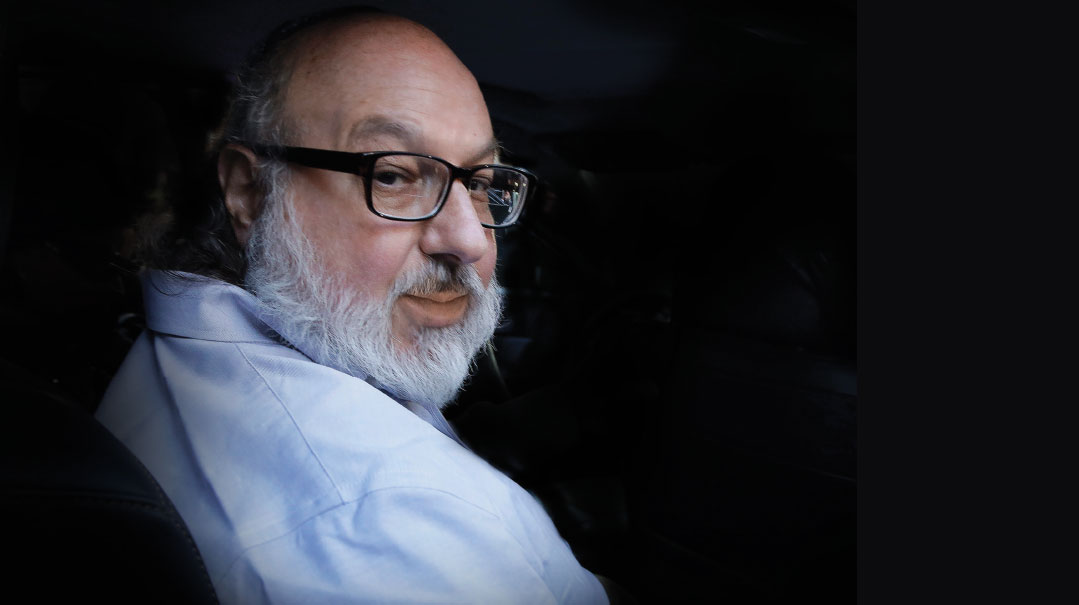
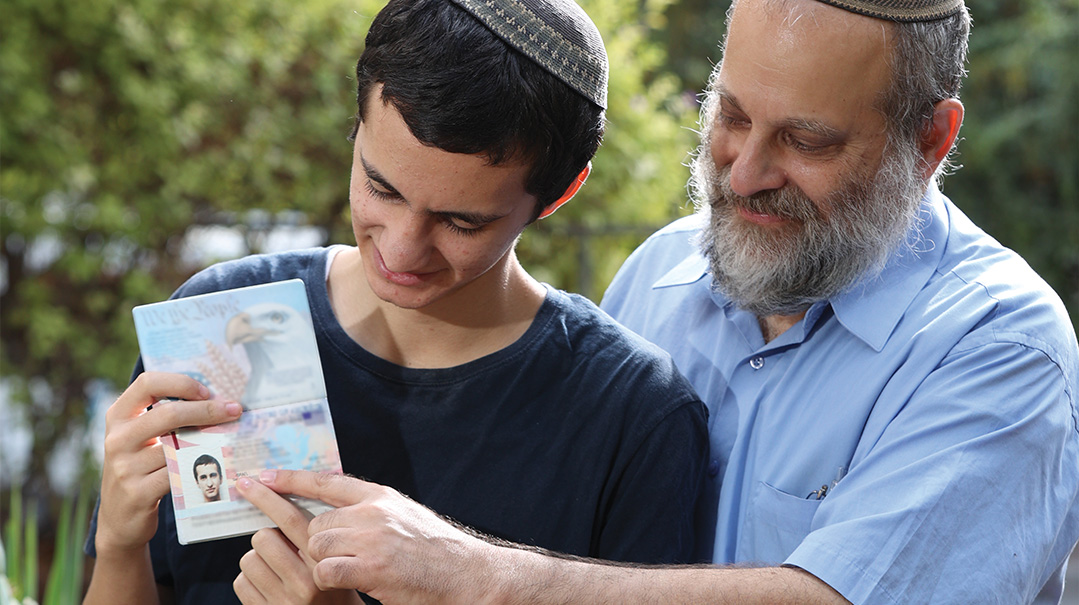
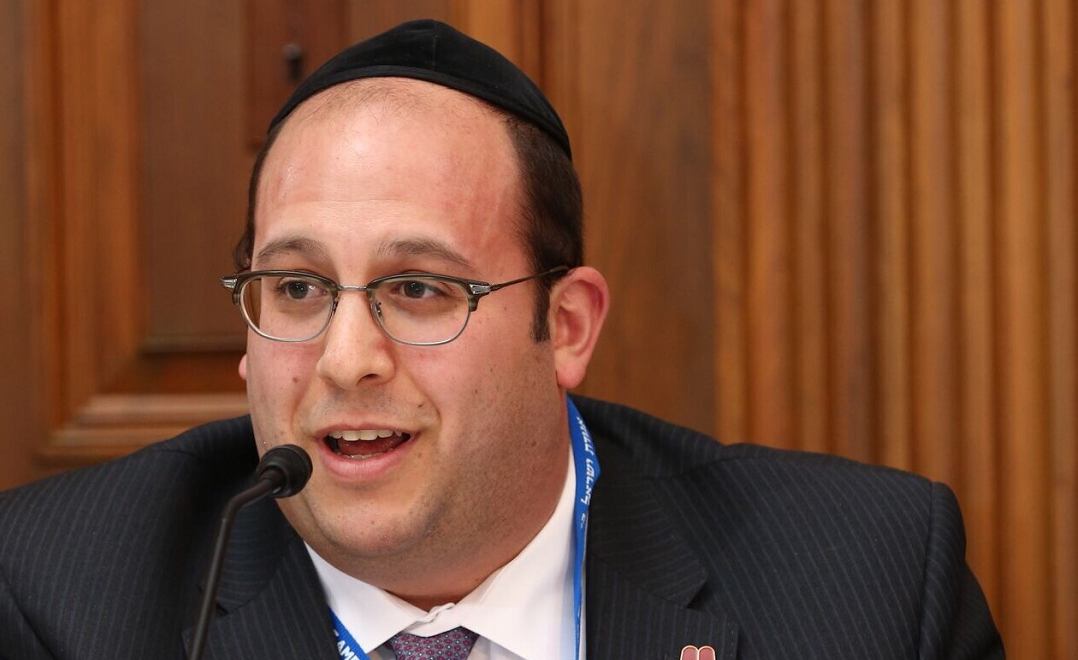
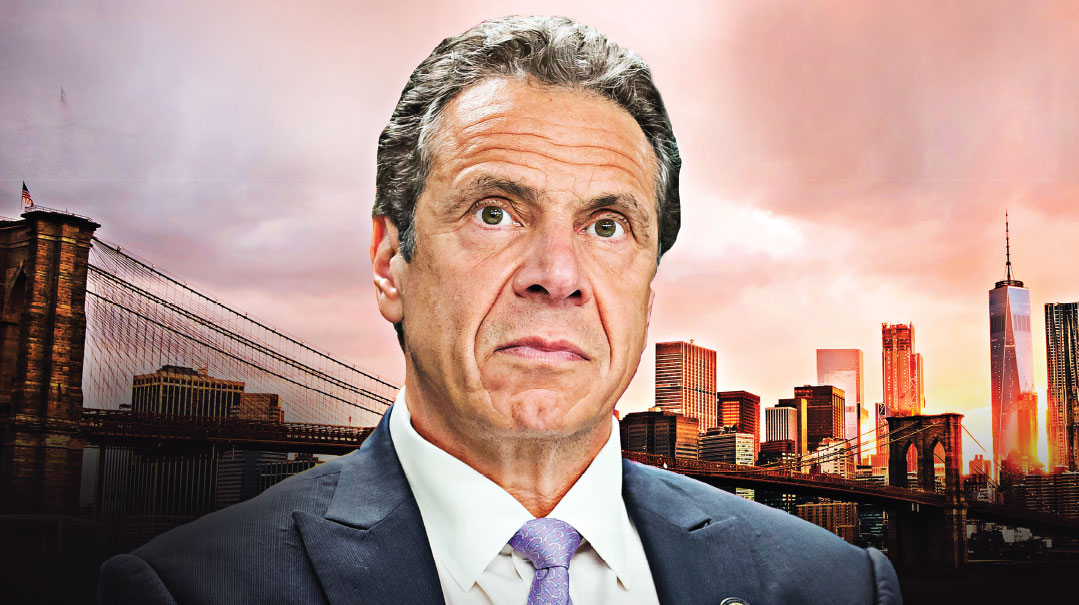
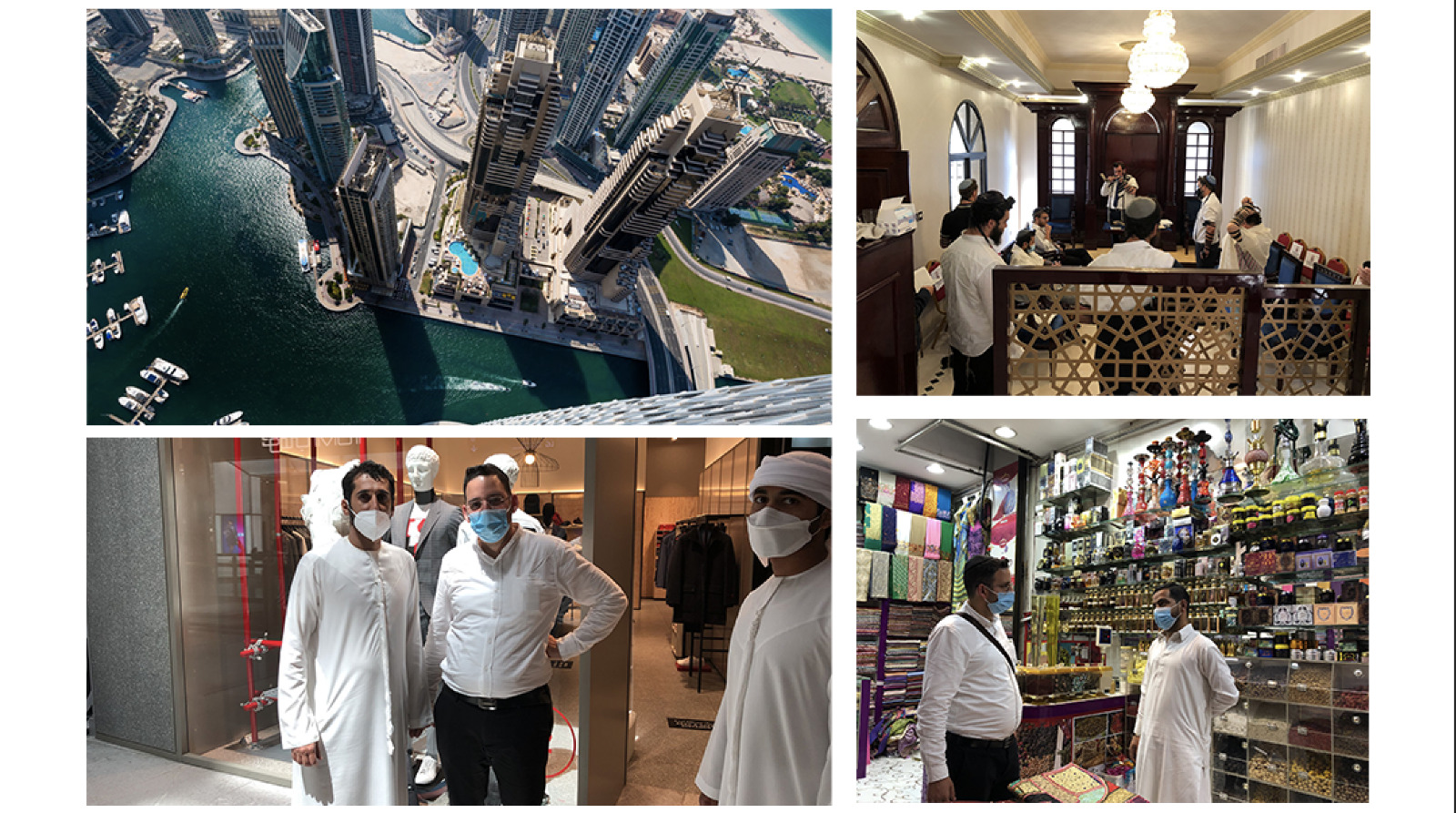
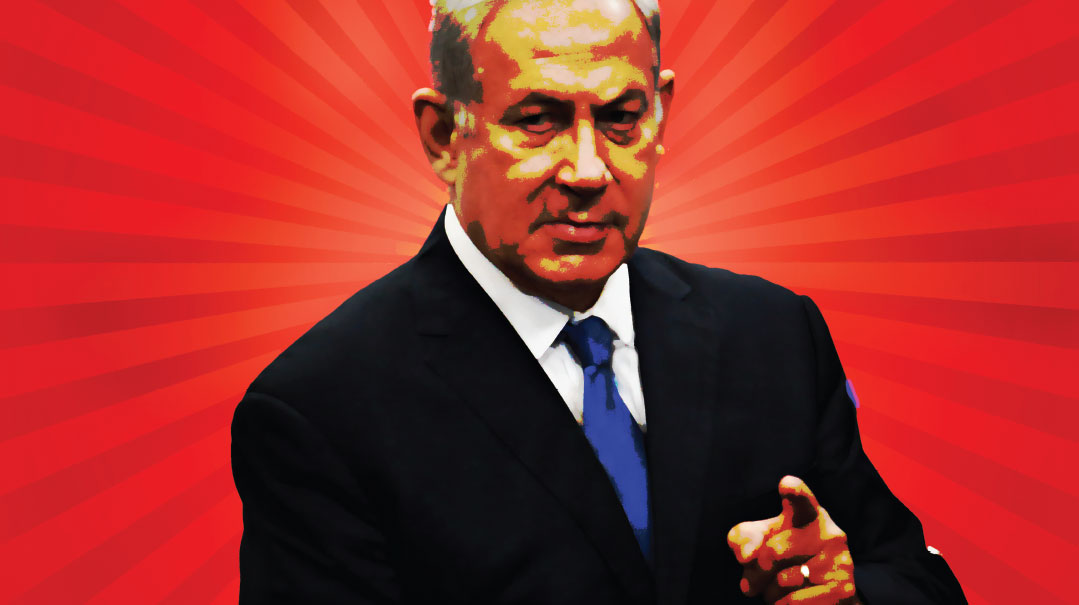

Comments (3)